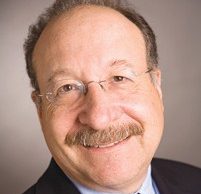By David Newton
Do you know the full story of the misguided history of taxation in the U.S.? My book, “The Misguided History of American Taxes,” examines:
• The origin – when did each tax start?
• The rationale – why was it started?
• The madness – how did it ever end up so illogical and convoluted?
Over the last 50 years, politicians have vowed to finally fix the American tax system but, in the end, little has changed. A person should not have to be a highly educated tax accountant or attorney to comprehend all the forms, rates, transfers, statutes, exemptions, carry-forwards, adjustments, write-offs, allowances and deferral schedules of our existing tax code. Today’s taxes include sales, excise, property, payroll, federal income, state and city income, corporate, capital gains, inheritance (“death”), gift, Obamacare penalty, alternative minimum and double taxation. It’s mind-boggling — madness — that there are so many different kinds of taxes and that each year the IRS has 110,000 employees processing over 170 million individual and business tax filings on 1.5 billion pages.
There is overwhelming evidence that America’s most prosperous times of economic growth and job creation, and strongest recoveries from recessions, occurred when government cut taxes — putting money back into the hands of households and companies so they could invest more, expand operations, make significant new purchases, hire additional workers, increase savings, allocate funds for R+D, pay down debts and boost salaries and wages. Yet politicians keep saying: “it just can’t be done,” and special-interest lobbyists appear to be too powerful to allow real reform to happen.
The 2016 presidential candidates are again talking about tax reform — just like 2012 and 2008, 2000, 1992 and back to 1962 when President Kennedy told the New York Economic Club that “The best means of strengthening demand among consumers and business is to reduce the burden on private income imposed by our present tax system, developed during World War II to restrain growth, (which now) exerts too heavy a drag on growth in peacetime; it siphons out of the private economy too large a share of personal and business purchasing power; and reduces financial incentives for personal effort, investment and risk-taking. Today, total tax revenues equal 15.3 percent of U.S. GDP but it was only 9.6 percent in 1990.
Those are things everyone should be free to do — take some risks, invest, work hard and build income and wealth. That entrepreneurial spirit made the U.S. truly exceptional and financially prosperous. It drives innovation, R+D, robust job creation and a strong economy. But calls for tax reform always seem to die out once politicians get to the White House, Congress, or the state house. Entrenched career lawmakers are more concerned about special interest groups and getting re-elected than doing the right thing for all Americans, with two major flaws in their logic: One, that taxes can efficiently redistribute income and wealth “fairly,” and two, that taxing free enterprise activities will have no negative impacts on those pursuits.
The misguided history of American taxes is not about a clearly thought out system that makes sense and functions well. Instead it’s 200 plus years of patchwork — “add this, tweak that, raise the rates, adjust these, exclude provisions” — with the result being a piecemeal concoction of definitions and special terms that have expanded the IRS code to more than 70,000 pages and over 200 different forms.
The system is truly broken and needs to be replaced. My motivation in researching and writing this book was to provide some common sense clarity so that everyone will easily understand the origins, rationales, and madness that define American taxes — and how these limit our freedoms and reduce great opportunities for economic growth. As comedian Henny Youngman said, “Ever notice that when you put ‘The’ and ‘IRS’ together it spells ‘Theirs’?
• David Newton is a new venture consultant and lecturer in executive development at the Rady School of Management at UC San Diego. He lives in Santa Barbara. A book presentation and signing begins at 6 p.m. April 7 at Calvary Chapel of Santa Barbara, 1 N. Calle Cesar Chavez.






 Print
Print Email
Email

















